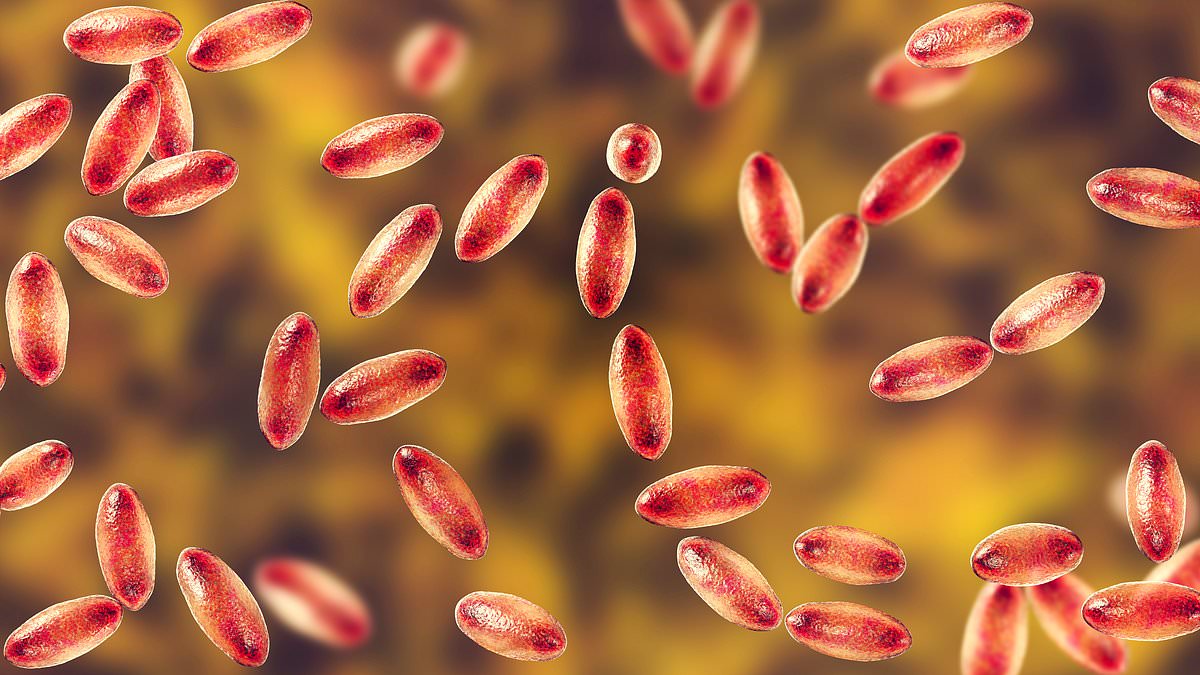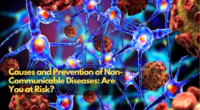Colorado health officials have confirmed that a resident has contracted the bacterial infection that causes the plague.
The deadly medieval disease can cause patients to cough up blood and for their skin to blacken – hence its ominous nickname ‘black death’.
It is not known how the individual became infected, however the bacteria can be passed via touching wild rodents and the bites of infected fleas.
Last year a Colorado native caught the disease from their pet cat. The US confirms just seven cases of plague every year.
Symptoms of the plague can look similar to those of flu, including sudden fever, chills, severe head and muscle aches, nausea, and vomiting.

Plague is an infectious disease caused by the bacterium Yersinia pestis, which is carried by fleas and transmitted between animals. The picture above is a 3D illustration of the bacterium

Plague typically spreads from infected wild rodents and infected fleas, which can colonize on pets’ skin
It can also cause swollen lymph nodes called buboes, which can become inflamed, tender, and tissues like the hands and feet may turn black.
If untreated, it can spread to the lungs and other organs, as well as the blood, with potentially fatal consequences.
The so-called Black Death may have been a death sentence in the 14th century, but advances in modern medicine, namely the advent of antibiotics as well as improved overall hygiene have made it curable.
A person with the plague — which can be spread between people via coughing or sneezing — can now be treated with antibiotics, though only if they’re initiated within a couple of days after symptoms such as fever appear.
Infections typically begin in wild rodents and infected fleas, which can colonize on pets’ skin.
People become infected when they come in contact with infected animals or respiratory droplets from a sick person.
While the source of infection in Colorado is unknown, scientists have previously found samples of the bacteria living in squirrels in the state.
The plague has become very rare in the US since the 15th-century outbreak that wiped out large swathes of the European population.
Most recently, in February, an Oregon resident caught the deadly illness from her cat — however she was treated in the early stages of the disease and no additional cases were found in the area.
And in 2021, a 10-year-old girl in Colorado died from the disease, the first death there since 2015. The state reported 22 cases of the plague between 2005 to 2020.
In 2015, four people died of the plague nationwide, including two from Colorado: an adult in Pueblo County and a teenager in Larimer County, according to Colorado Public Radio.
Plague is more commonly seen in summer months because the bacteria can reproduce rapidly in warm temperatures and higher humidity.
People also tend to spend more time outdoors in the summer, widening opportunities for infected animals to transmit the bacteria to humans.
Pueblo County health officials say it’s crucial to eliminate potential rodent habitats around residential areas and recreational spots by clearing out brush, rock piles, trash, and lumber piles.

An illustration from 1656: A plague doctor in protective clothing. The beak mask held spices thought to purify air, the wand was used to avoid touching patients
This reduces places where rodents can hide and breed, minimizing the risk of exposure to fleas carrying plague bacteria.
Additionally, they recommend individuals avoid direct contact with dead animals; if handling is necessary, they should wear insect repellent with DEET to protect against flea bites.
Using a long-handled shovel, place the animal in a secure garbage bag and dispose of it promptly in an outdoor trash can.
To further prevent flea bites, it is recommended to apply DEET-based insect repellent to exposed skin and clothing, particularly on pants, socks, shoe tops, arms, and legs.
Pets should not be allowed to sleep in beds to minimize potential flea exposure. Regular flea treatment for pets is essential, while flea collars are ineffective.
It’s also crucial to keep pets away from rodent-prone areas, such as prairie dog colonies, and store their food in secure, rodent-proof containers to prevent contamination and subsequent exposure to plague bacteria.
These measures are essential for reducing the risk of plague transmission and ensuring community safety.










